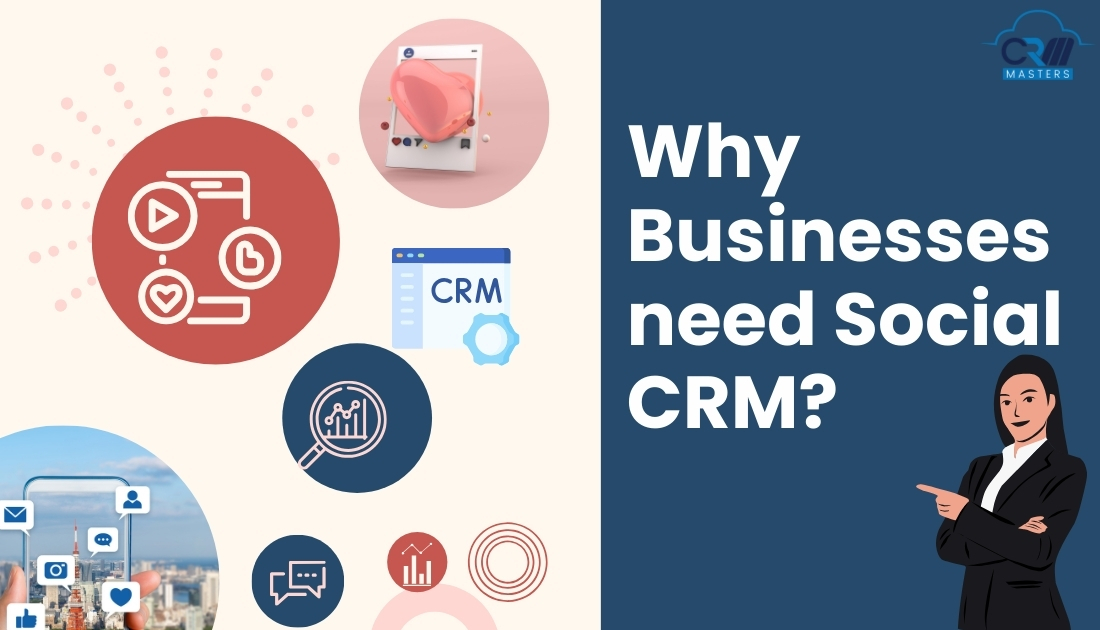What is CRM and Why Do Businesses Need It?
What is CRM and Why Do Businesses Need It?

What is CRM and Why Do Businesses Need It?
In today’s fast-paced business world, it’s easy to get lost in a sea of customer interactions, sales data, and marketing efforts. That’s where Customer Relationship Management (CRM) comes in – a powerful tool that helps businesses like yours stay organized, focused, and customer-centric. But what exactly is CRM, and why do businesses need it? Let’s dive in and find out.
What is CRM?
Customer Relationship Management (CRM) is a technology solution that helps businesses manage their interactions with customers, clients, and sales prospects. It’s a software platform that integrates various functions, such as sales, marketing, and customer service, to provide a unified view of the customer.
Think of CRM like a digital Rolodex on steroids. It’s a centralized database that stores all your customer information, including contact details, purchase history, and communication records. With CRM, you can track every interaction with your customers, from initial contact to final sale and beyond.
History of CRM
The concept of CRM has been around since the 1970s, when businesses first started using database marketing to manage customer relationships. However, the modern CRM movement began in the late 1990s, when software companies like Siebel Systems and Salesforce.com introduced the first cloud-based CRM solutions.
Today, CRM is a multibillion-dollar industry, with a wide range of vendors offering customized solutions for businesses of all sizes and industries. From small mom-and-pop shops to large corporations, CRM has become an essential tool for any business that wants to stay competitive.
Benefits of CRM
So, why do businesses need CRM? Here are just a few benefits that CRM can bring to your organization:
- Improved Customer Service: With CRM, you can store all your customer interactions in one place, making it easier to track issues and resolve them quickly. This leads to happier customers and increased customer satisfaction.
- Increased Sales: CRM provides a unified view of the customer, making it easier for sales teams to identify new opportunities and close deals.
- Better Marketing: CRM enables you to segment your customer base and create targeted marketing campaigns, increasing the effectiveness of your marketing efforts.
- Enhanced Collaboration: CRM provides a single platform for all your departments, including sales, marketing, and customer service, to work together and share information.
- Data-Driven Decision Making: CRM provides real-time analytics and insights, helping you make data-driven decisions that drive business growth.

Key Features of CRM
While different CRM solutions may offer varying features, here are some key capabilities to look for:
- Contact Management: a database to store customer contact information and communication records.
- Sales Management: tools to track sales performance, manage leads, and forecast revenue.
- Marketing Automation: features to automate and personalize marketing campaigns.
- Customer Service and Support: tools to manage customer service requests and issues.
- Analytics and Reporting: dashboards and reports to provide insights into customer behavior and sales performance.
Why Businesses Need CRM
In today’s competitive market, businesses need CRM to stay ahead of the game. Here are just a few reasons why:
- Stay Competitive: In a world where customers have more choices than ever before, businesses need to stay top of mind and provide exceptional customer experiences.
- Build Stronger Relationships: CRM helps businesses build trust and loyalty with their customers, leading to long-term relationships and repeat business.
- Increase Sales and Revenue: By streamlining sales processes and identifying new opportunities, CRM can help businesses increase sales and revenue.
- Improve Customer Insights: CRM provides businesses with a unified view of the customer, enabling them to gain deeper insights and make data-driven decisions.
- Enhance Collaboration: CRM brings all your departments together, ensuring that everyone is on the same page and working towards the same goals.
Choosing the Right CRM
With so many CRM solutions available, choosing the right one for your business can be overwhelming. Here are a few things to consider:
- Your Business Size and Industry: Choose a CRM solution that’s designed for your business size and industry.
- Your Sales Process: Consider a CRM solution that aligns with your sales process and workflows.
- Integration with Other Tools: Choose a CRM solution that integrates with other tools and software you use.
- Scalability: Consider a CRM solution that can grow with your business.
- User Adoption: Choose a CRM solution that’s easy to use and adopt, to ensure high user adoption rates.
Top CRM Solutions
Here are some popular CRM solutions to consider:
- Salesforce.com: a cloud-based CRM solution designed for businesses of all sizes.
- Zoho CRM: an affordable CRM solution with robust features and integrations.
- HubSpot: an all-in-one marketing, sales, and customer service platform.
- Microsoft Dynamics 365: a comprehensive CRM solution that integrates with other Microsoft tools.
- Freshsales: a modern CRM solution with AI-powered sales insights.
Conclusion
In conclusion, CRM is a powerful tool that helps businesses manage their customer interactions, sales data, and marketing efforts. With its many benefits, including improved customer service, increased sales, and enhanced collaboration, CRM is an essential solution for any business that wants to stay competitive. By choosing the right CRM solution and implementing it effectively, businesses can build stronger relationships with their customers, drive business growth, and achieve long-term success.
